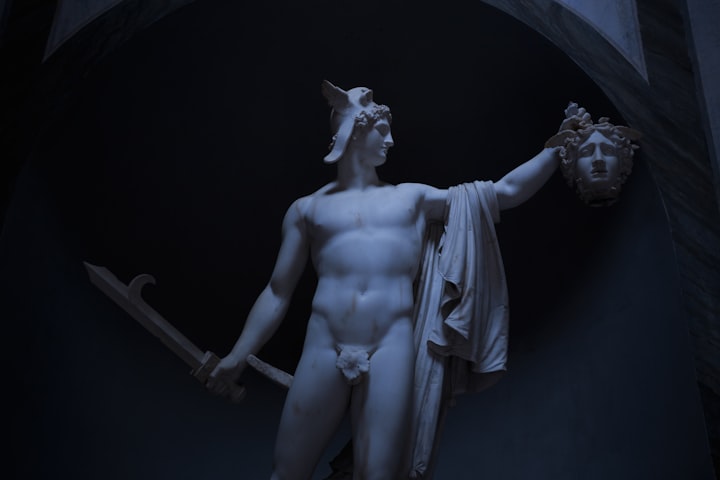The birth of cities in Greece follows the end of the Bronze age, the city (polis) of Greece precedes many other civilizations in terms of absolute scale and population density due to the noteworthy and frankly sporadic nature of fornication and erection of homes.
The term polis is thought to originate from the etymological roots of Mycea, Old India and Lithuania. In Lithuanian the word pilis, in Latvian the word pils and in Old Indian the word pur means ‘fortified place’.
The first polis was likely a fortified place, or city.
There are three scholarly theories that try to reason the origin of Polis.
The first theory assumes that the first instance of Greek Poleis (plural polis) is found on the island of Cyprus where the Phoenician city-states were used as models for language and societal organization.
A second theory denotes the origin of the city-state to come from colonies (apoikia) in current Southern Italy that spread to the regions of Euboia, Achaia and Isthmos. This idea works in favour with the knowledge we have of the city of Smyrna, modern Izmir, Turkey; a beautiful place.[Lovely video]. Smyrna was a fortified city built during or prior to the 9th century before Jesus Christ (bjc). The city of Smyrna is a concrete example of a fortified place within which you would find a maze of houses.
There is also the traditional theory that the polis originated from the eastern portion of Greece like Chalkis (ΧΑΛΚΙΔΑ), Euboia(Ευβοια) and Corinth(Κόρινθος). From these regions, they colonized the farther reaches of the Mediterranean ocean.
I’ll show you the formation of the polis in terms of its political, societal, and developmental form. These modalities will offer us an insight into how the nature of the polis developed from the 9th century bjc until the 5 century bjc and how time impacted the evolution of the polis.
The polis or as it will become known in the classical period as the city-state, is a collection of people living together in relatively close quarters.
Effectively, the term polis would not be possible without the people who make up the community, and while a majority of the information we have stems from Aristotle’s description of the citizen, we can deduce that a citizen in the archaic period was more aptly named or considered to be a member of society rather than the better defined form of citizen that we have come to know from the Hellenistic and Classical periods of Greek history.
A member of society is a rudimentary form of citizen, with the similar principles, just that a citizen is a more complete notion with freedoms associated.
During the archaic period, the city is born near the Aegean ocean,a bay of the Mediterranean ocean. The city is defined as a collection of homes (oikos) grouped by a fortification wall that brings safety to those living within these walls.
In a way the act, of living in this community and owning a house with your neighbours created a sense of obligation to one another and a sense of safety that a hunter gatherer tribe simply could not provide.
The polis was not limited by its walls though, it equally included the properties outside the city walls like farmland and larger estates nestled on the expansive territory.
The habitations on the outside are called chora or ge and the membership of the owners was dependent on the polis in which they lived. Every polis was different with different requirements for membership, so sometimes the farmers in the chora were part of the city other times they weren’t.
While the city was often delimited by its walls, it was also bordered by the formations of sanctuaries to the deity of the region.
A prime example of this is located on the slopes of Mount Parnassos called the Sanctuary of Delphi. This sanctuary delimited Athens from the rest of the region.
Often the citizens of neighbouring polis would build sanctuaries next to one another. So you would often find two sanctuaries side by side worshipping different deities.
As you can clearly see, religion was often tied with political and societal principles in Greece. Religion was never disconnected from the state, instead both the society and the ideas of religion worked together to develop the Polis and its people (demos).
The center of the Polis was denoted by a sanctuary to the god of the polis. These sanctuaries were commonly placed on hills or places of tall stature often described as a way to connect with the gods, an example that can still be found in modern day Greece is the Parthenon. The parthenon stands on a towering hill that can be seen from the far distance, a monument so impressive that when the Romans conquered the Greeks they left it intact.
In sanctuaries like these, citizens would perform religious offerings to the gods of the polis. During a ceremony a large animal was brought up the steps of the hill, past the wide entrance built solely for large animals to enter and often drugged to sleep. These animals were killed as quickly and humanely as possible, and it’s blood would touch the altar.
The media misrepresents sacrifices, it was not as much a hooded cloak and glum occasion but instead an ancient barbecue.
The animal was disemboweled and its intestines were burned. The burning bowels allowed dark billowing smoke to reach the heavens; creating a connection with god.
Once their connection to god has been substantiated, the citizens ate the rest of the animal. These were citizen only events, a privilege of the time.
To become a citizen of a Polis, it was a very difficult affair, and often impossible for those without clean blood. Like in the movies, though you could always start your own colony and become a citizen there.
While the rules of bloodlines varied from one polis to the next, generally citizenship was passed down from the father to the son of a matrimony. The son had to endure and abide to the rigorous laws and tribulations set down by the citizens of the polis. Once the boy reached the age of 18, his value would be conferred by a council and if his blood line (ius sanguinis) was verified to be true, his name would be added to the record of citizens.
Though it should be noted that in Athens the only way to achieve clean blood would have been to have both a mother and a father of Athenian citizenship.
While this was the only way to become a real citizen of city, it was still possible to fall under two other categories of person.
The first was citizen (Polotai or astoi)
The second was a slave (Douloi)
The third which may not be immediately evident as to its importance was Xenoi or Metoikoi.
A Metoikoi was a broad category that included travellers, trader, beggars, craftsmen, friends, intruders, refugees or assailants. This category was very large partly because of the nature of the Polis during the archaic period.
Polis were always constructed near the Ocean or a large body of water, which enabled trade at an incomparable scale for the time period. Trade by boat from colony to colony was much faster than any other method of transport that was achievable by land.
The reason for Greek success was the exponential growth of colonies and resources in their network.
This transport of goods was only possible due to the growing number of colonies which allowed the hundreds of poleis to pool resources and develop faster by sharing resources that were in high demand in one place and in low demand in another. Real market economics.
Often, the colonies formed bonds with their home city and while each city was completely politically independent, its construction was often based on their home polis, but adapted to match their new environment and needs.
Not only was the politics and architecture adapted to the environment, but so were the deities who grew more numerous by the century. While in one place the deity of wheat maybe have been important, on another island olives may have matter more.
The colonial polis “worked” with the natives of the land,
Sometimes it may have meant that they killed the natives
While other times they allowed them citizenship or slavery.
Only men left their homes to build new cities, these men found women to marry, the native women. The greeks constructed new homes completely from scratch with whatever they found on the island with the blueprints of their past.
By the Classical period it is estimated that over 600 poleis were spread across the Mediterranean ocean. That’s 600 cities in 300 years, for scale thats 2 new city every. single. year.
To bring this idea full circle, it is important to understand that the main reason that the polis survived was likely not just because of their societal norms and religious perspectives, but more to do with the fact that the exchange of goods like olives and olive oil were dependant on investment of time, location and geography.
It often took nearly 14 years or 28 new cities before a plantation of olive trees bore enough fruit to create olive oil, a very valuable commodity at the time.
Some colonies were better capable of producing artisanal works like vases because of the wealth of clay found in a region for example. These colonies were capable of quickly specializing their population in clay making and exchange their pots for olive oil while simultaneously wait for their crop to bear fruit.
This rapid expansion of ventures across a large expanse meant that the Greek civilisation, worked together but individually specialized. The cities had sufficient political autonomy as to not wait for a king to proclaim an answer but also sufficient support to build successful poleis.
Aristotle’s idea of citizenship must be mentioned if only briefly, because his thoughts are extremely important in relation to the polis as a city-state.
A city is a place that would not be possible without the people who live, laugh, cry and die there.
Aristotle looked back on the archaic period and made note of the fact that the cost of citizenship varied by government.The evolution of government was often imminent, and led to changes in citizenship requirements.
He uses the example of the city of Athens which has endured
The monarchy Theseus,
The oligarchy of Dracon and Solon,
The tyranny of Peisistratus,
And finally the democracy Cleisthenes.
These changes in government altered the demographic of the city, the meaning of citizenship, and the value of land, whether inside or outside the city limits.
It meant that once the idea of taxation, and accumulation of wealth became mainstream, the wealthy were able to buy their ticket to power. The polis morphed away from its original conception of a fortified place where only the clean blooded were allowed to take part in decisions and became an open market where value rules.
With taxation, even the Metoikoi were capable of paying towards a tax exemption (ateleia) and be allowed to hold property in a polis, be given legal protection from enslavement and safety from the confiscation of property.
To conclude, the polis was an ancient invention that was a instrumental to the development of society as we know it today, while it begun as a concrete citizenship based on property and bloodlines, it became the cause of massive trade and ultimately the reason that our current law system works as it does thanks to Dracon and Solon.
If it were not for the polis, democracy would not have been constructed until many years later by another civilization maybe on the other side of the world.
Photo by Luke Michael on Unsplash







Comments
There are no comments for this story
Be the first to respond and start the conversation.